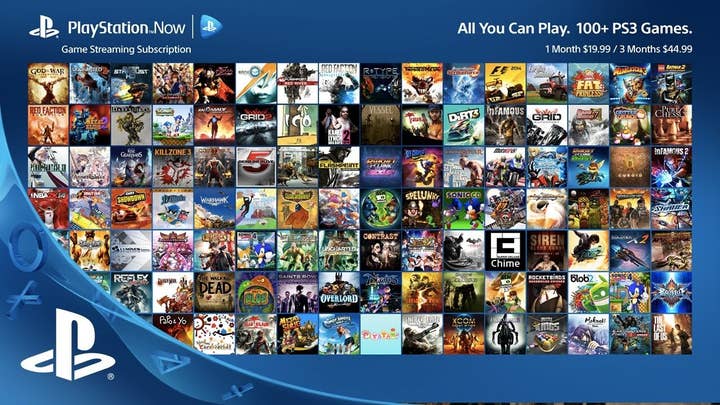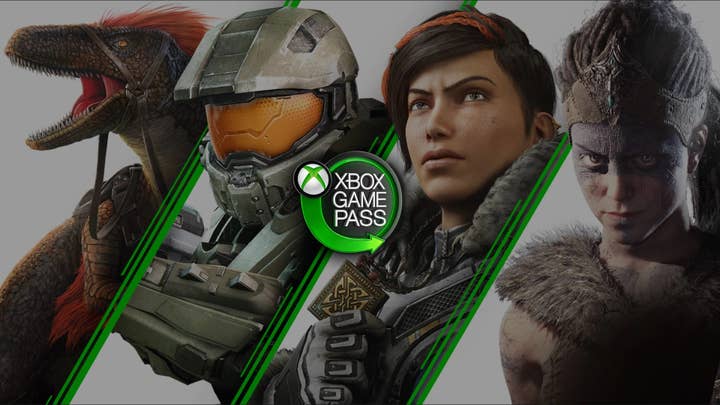Cloud streaming: complement, not competition, to next-gen consoles
Microsoft's decision to bundle xCloud as part of Games Pass Ultimate is the smartest decision anyone has made in cloud streaming so far
While the list of things we don't know about the next-gen consoles has been growing mercifully short in recent months, there remain some pretty huge gaps in that landscape. Some of those open questions pertain to the console launches themselves, starting obviously enough with how much it's all going to cost. Others, however, are broader questions about the strategies being pursued by the platform holders and other major players in the industry, and how they're going to shape the industry's business models and the experiences of players over the coming five to ten years.
This question is more salient in the upcoming generation than in the past few, because this is the first generation in some time where the rival companies are really articulating different visions of the future. Success or failure in recent console generations has largely come down to a question of valence; the major firms were all promising to do broadly the same things, so the winner was the company that did those things most competently and effectively.
There's no bigger wildcard in the deck for next-gen consoles than the role of game streaming
This time around there are a lot of different possible futures in the mix, and I'd argue that there's no bigger wildcard in the deck than the role of game streaming. Both Microsoft (with xCloud) and Sony (with PlayStation Now) have embraced the notion of game streaming to some extent, while industry giants NVIDIA and Google are both also pitching for a slice of this as-yet-hypothetical market with GeForce Now and Stadia respectively. Amazon, the world's largest cloud services provider, will probably also want in at some point, perhaps once all of its efforts in the gaming space stop resulting in some form of public tripping over its own feet.
The question that remains entirely up in the air is where on earth streaming sits alongside all of the other technologies, platforms and services that make up the infrastructure of modern video games. The initial assumption -- which still seems to lie at the heart of the thinking of some of streaming's most fervent ideologues -- was that the model would replace our existing ways of delivering and playing games just as completely and seamlessly as video streaming has replaced DVD rental. Consoles and their ilk would be removed from the equation entirely in favour of thin software clients on low-powered hardware devices that would stream games from powerful silicon stacked up in data centres.
xCloud always seemed like a more sensible take on the role streaming could play in the future of gaming
This vision never entirely made sense to me; powerful computing devices get cheaper and smaller and more ubiquitous by the year, to the point where a majority of consumers in the developed world now have a couple of devices more than capable of playing pretty high-spec video games. That's not quite the same as owning a dedicated games console, of course, but it illustrates the point that the evolution of cheaper, faster, better consumer technology, often far outstripping the evolution of cheaper, faster, better network connectivity, hardly seems to be a context that screams for local processing to be replaced entirely with something on the end of a broadband connection.
Microsoft's xCloud initiative, which is currently in beta, always seemed like a more moderate and sensible take on the role streaming could play in the future of gaming. Rather than being an attempt to replace powerful consoles or gaming PCs, it is positioned as a kind of filling that goes into the spaces between those devices -- a way to engage with games on your phone, your laptop, or some other device you have with you at a time when it's not possible or convenient to play a game on a console.

That makes an enormous amount of sense. The possibilities it opens up are enormous, especially for future games which actively seek to take advantage of this kind of play-anywhere paradigm, and it allows streaming to function as an extension of consumers' existing experiences rather than an attempt to replace something that's actually working pretty well already.
The one thing that didn't seem to fit together in this scenario -- the puzzle piece that just wouldn't slide into place -- was the business model. The appeal of being able to stream a game to your phone or other device when you're not around your console is clear enough, but convincing consumers to pay a subscription for that functionality always seemed like a hell of an uphill struggle. That makes Microsoft's announcement this week that xCloud isn't actually going to be a separate service at all, and will instead be part and parcel of the Game Pass Ultimate service, into something of a eureka moment.
As with several aspects of the next generation, we end up looking to Sony for a response rather than a lead
Game Pass is already an incredibly important part of the value proposition of Xbox, and making xCloud into part of that is a great example of that so often roughly abused term, "synergy". The cloud service adds extra value to the Game Pass library of games, making them easier to access and play in more places. That library, in turn, gives meaning to xCloud and shifts its role in consumers' eyes from being a hard-to-justify standalone service to being a potentially crucial part of Xbox's premium offering.
It goes without saying, I guess, that this isn't the streaming future that technology advocates have dreamed of. There will be some people for whom streaming being reduced to a "snack between meals" will be a bitter disappointment, and the much grander aspirations of something like Google Stadia will continue to find adherents as a consequence. For now, though, Microsoft's decision to turn xCloud into a component of its broader Game Pass strategy is by far the most realistic and promising move any firm has made with game streaming technology -- a move that fully acknowledges the limitations of streaming, both commercial and technological, while still keeping the door open to the opportunities and benefits it can provide down the line.
It remains to be seen how other players -- and potential players -- in the game streaming sector will respond to this move. It's arguably a splash of cold water on the plans of other companies; Game Pass with xCloud built in is a value proposition that few of them are in a position to rival even if they wanted to.
As with several other aspects of the run-up to the next generation, we end up looking to Sony for a response rather than a lead. The firm hasn't been forthcoming about how it sees PlayStation Now fitting into its next-gen plans, and while there's some potential to the notion of a kind of "retro" service that allows people to access the extensive PlayStation back-catalogue over streaming, for example, it's not clear whether there's really an audience for that independently of the existing audience for PlayStation Plus. This suggests that a similar merger of services could well be in the future on Sony's side of town as well.
At least with this announcement, one more piece of the puzzle slides into place. Streaming is absolutely going to be a part of the next generation of gaming, but it takes its place as a cautious evolution rather than the revolutionary overthrow of local processing power some few had expected. In many ways, though, this is a more exciting possibility; by making streaming into a feature a large proportion of users will have access to, it allows developers to think about how to leverage that remarkable new portability in the plans for their next-gen titles, rather than merely treating it as a headache of how to make their existing titles playable with bad input lag and video encoding artifacts.
Perhaps, as something complementary to consoles rather than something seeking their overthrow, streaming might deliver a minor revolution of sorts after all.

